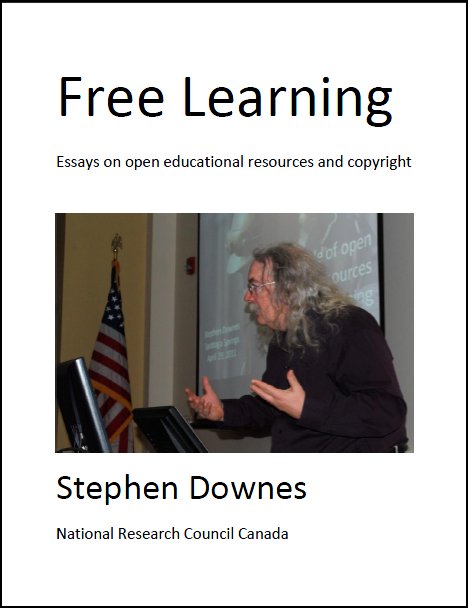Class Sessions
These are some of the class sessions I have given over the years (there are many more from MOOCs which I just haven't added yet).
See also presentations (also by catgeory). Viewers may also be interested in the interviews and class sessions I have offered over the years.
- Personal Learning: Taking Ownership of Learning Online – Part 7
Dec 07, 2020. Class Presentation, Maskwacis Cultural College, (Class). This is a class talk discussing institutional support for personal learning. It recaps some of the essential features of personal learning, describes the online host-provider framework, and then delves into a number of examples and models that illustrate the framework. It also digresses quite a bit. - Personal Learning: Taking Ownership of Learning Online – Part 6
Nov 16, 2020. , (Class). - Personal Learning: Taking Ownership of Learning Online – Part 5
Nov 02, 2020. , (Class). - Personal Learning: Taking Ownership of Learning Online – Part 4
Oct 19, 2020. Maskwacis Cultural College, (Class). - Personal Learning: Taking Ownership of Learning Online – Part 3
Oct 19, 2020. Maskwacis Cultural College, Online, Via Zoom (Class). - Personal Learning: Taking Ownership of Learning Online – Part 2
Sept 10, 2020. , (Class). This second part of the discussion of personal learning is focused on finding and developing sources of relevant learning content. - Personal Learning: Taking Ownership of Learning Online: Part 1
Aug 31, 2020. Continuing Education, Maskwacis Cultural College, Online, via Zoom (Class). This is the first part of a longer presentation on personal learning. This part is directly addressed to learners, and describes the need for, and how to create, your own personal learning environment, with a focus on interactivity and usability. The text transcript is available here. - From Repository to the Distributed Web
Apr 26, 2018. E-Learning 3.0, (Class). Each file and all of the blocks within it are given a unique fingerprint called a cryptographic hash. When looking up files, you're asking the network to find nodes storing the content behind a unique hash.
Stephen Downes, Casselman, Canada
stephen@downes.ca
SUBSCRIBE TO OLDAILY DONATE TO DOWNES.CA
Contact
Follow
My E-Books


